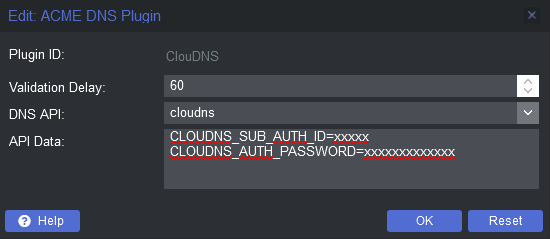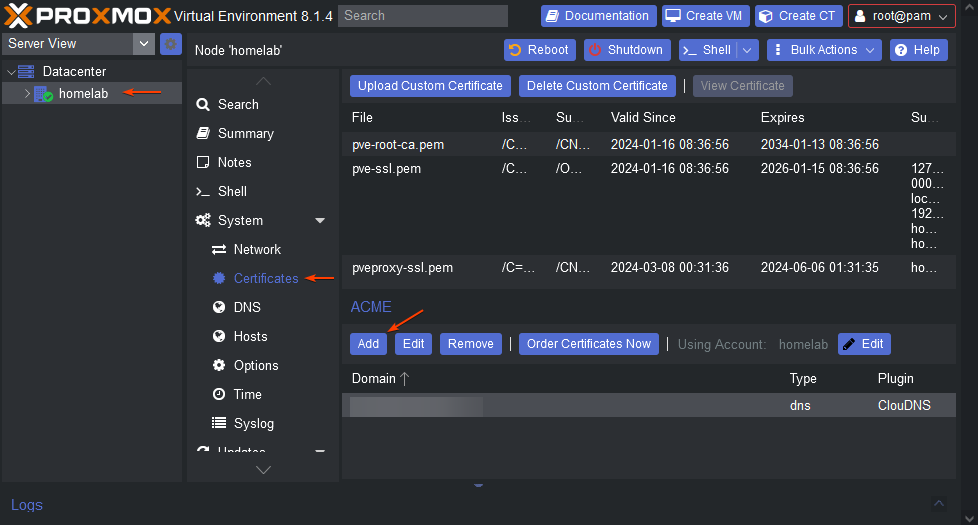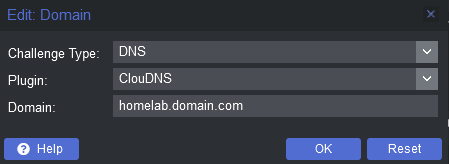ACME with Proxmox
Proxmox Virtual Environment is a virtualisation platform designed for the provisioning of hyper-converged infrastructure. Proxmox allows the deployment and management of virtual machines and containers. It is based on a modified Ubuntu LTS kernel.
One of the requirements for the use of Proxmox with ClouDNS is to have access to our HTTP API. All our Premium DNS and DDoS Protected DNS plans include access to the HTTP API and can be used to generate free SSL certificates with Cerbot for any hostname you need. Another important condition is, that your domain is delegated to our name servers and the DNS for the domain name is hosted on our side.
How to configure ACME with Proxmox
- Install Proxmox from here.
- Install ACME Plugin if not already installed.
- After installation go to Datacenter > ACME and create an account used for Let’s Encrypt. Example:

- After creating Let's Encrypt account go to Datacenter > ACME and create Challenge Plugin using ClouDNS as a provider as shown in the image below. You can use either your auth-user id or sub-user id at ClouDNS. If you have not created an auth-user or sub-user, you can do this from here.

- The configuration should look like this:

- After creating Challenge Plugin go to Node > Certificates and add ACME Domain. Select DNS as challenge and the previously created Challenge Plugin and fill in the domain name as shown in the following images:


Difference between Sectigo SSL certificates and Let's Encrypt SSL certificates
As you know, ClouDNS provides Sectigo SSL certificates. Currently, there is no difference in the security between the provided Positive SSL certificates and Let's Encrypt SSL certificates. The advantage of the Positive SSL certificates is that they are issued by Sectigo for 1 year (Let's Encrypt certificates are issued for 3 months) and the relying party warranty they have. The Let's Encrypt SSL certificates are a good option for mail servers, control panels, internal systems, and other types of administrative services, but using trusted SSL certificates is still an advantage for commercial websites.
Last modified: 2024-07-05